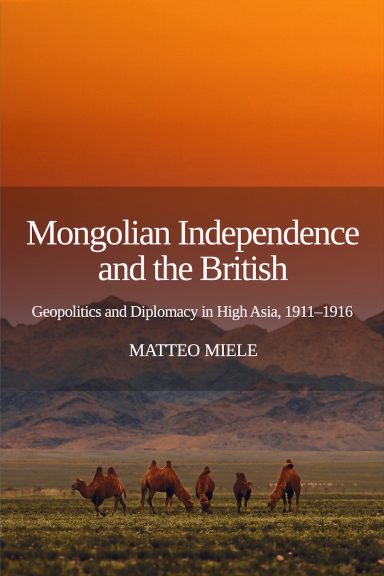This work focuses on some High Asian diplomatic, geopolitical and trade issues, from the point of view of the British Empire, in the period between the last phase of the Ch’ing dynasty and the early years of the Chinese Republic. In particular, the significance for the British of Mongolian independence in the geopolitical dimension of Tibet will be analyzed within the framework of the international equilibrium system that had originated from the Anglo-Russian Agreement of 1907. The geopolitical role of Tibet was called into question by the fall of the Ch’ing Empire and by the declaration of independence of Mongolia – a country strongly linked for religious, cultural, and historical reasons to the Land of Snows but connected for political and economic reasons to Russia. The research reconstructs the British attempt to use the relationship between Outer Mongolia and Russia to its advantage, in a sort of exchange necessary to make Saint Petersburg accept the Simla Convention of 1914 – finally signed by the British and Tibetans without the Chinese – and which came into conflict with what had been decided between the Russians and the British in 1907.
Mongolian Independence and the British: Geopolitics and Diplomacy in High Asia, 1911–1916
The book can be downloaded in full via the PDF icon (see above). You can also read each chapter’s web version online (see below).
Table of contents
The End of the Manchu Dynasty and Tibetan Independence
London and Mongolian Independence
The British and the Kyakhta Accords
Annexes
Matteo Miele (Frosinone, 1984) is an Affiliated Assistant Professor at the Center for Southeast Asian Studies (CSEAS) of Kyoto University and a Fellow of the Royal Asiatic Society of Great Britain and Ireland. Between August 2011 and July 2012, he was a Lecturer at the Sherubtse College, Royal University of Bhutan. He received his Ph.D. (Dottorato di Ricerca) from the University of Pisa in 2014.
